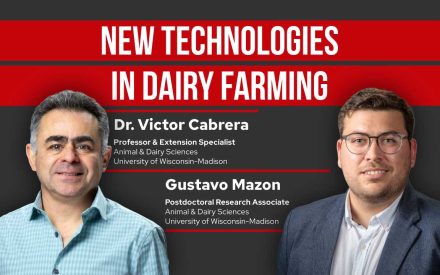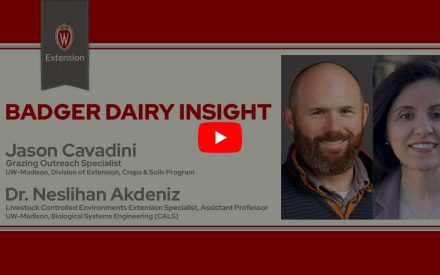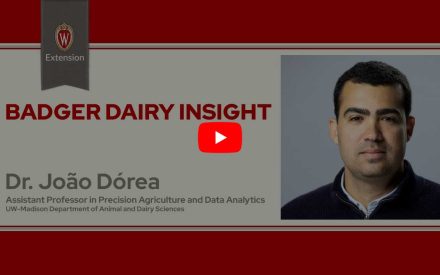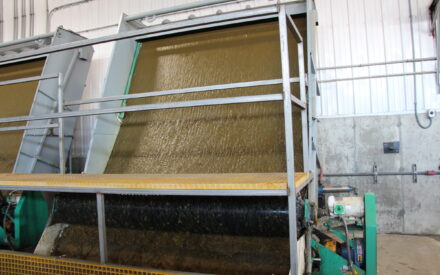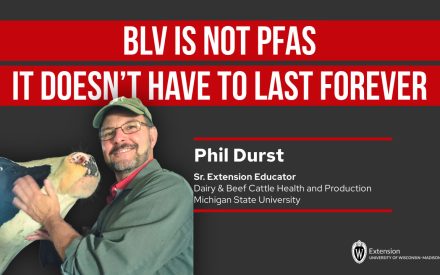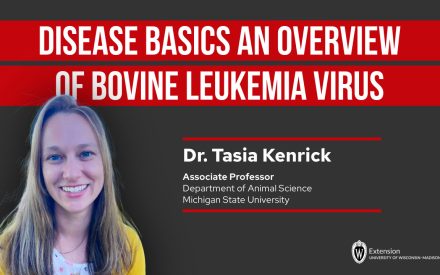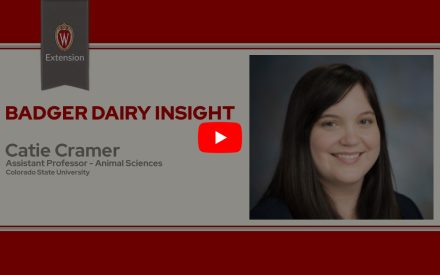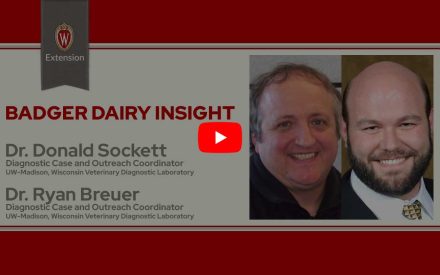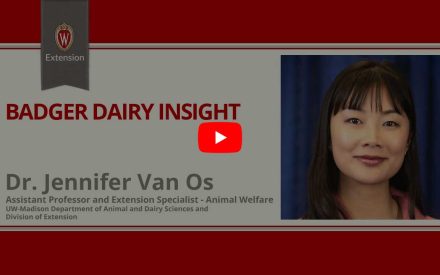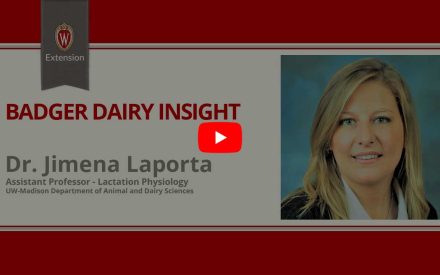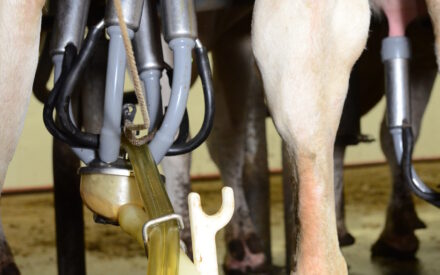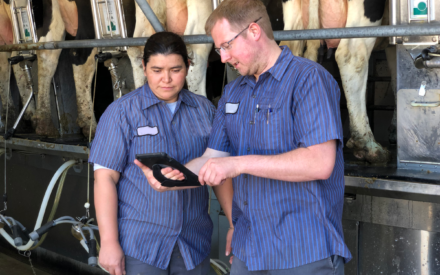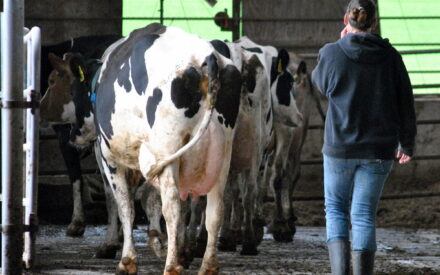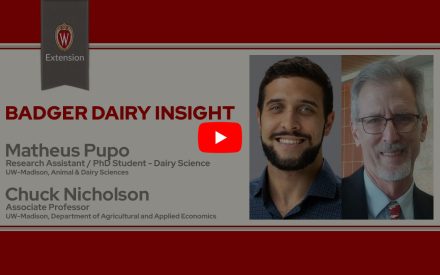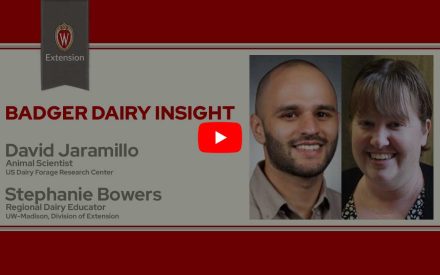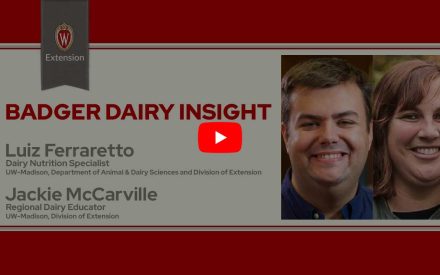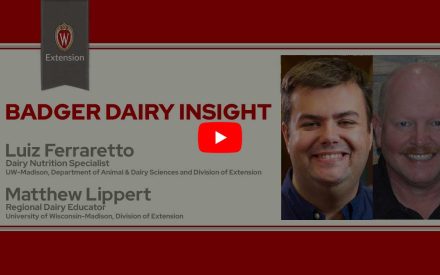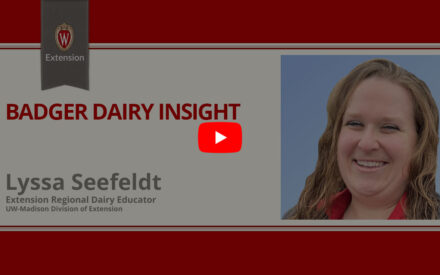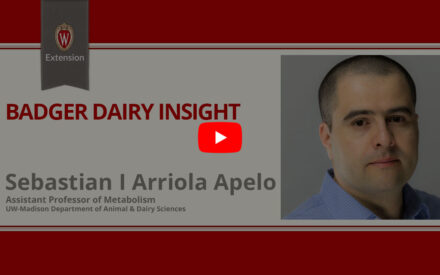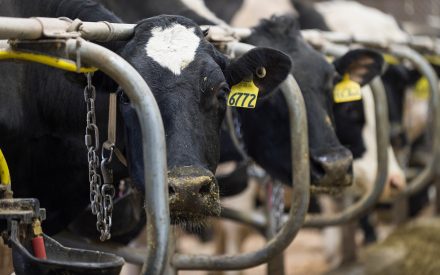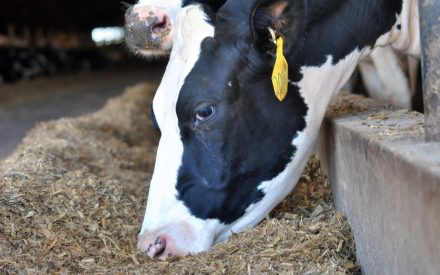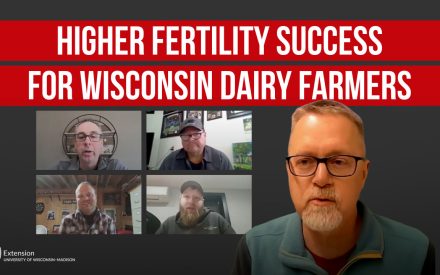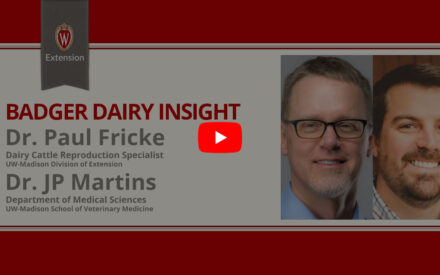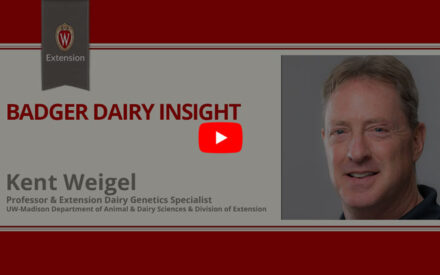Badger Dairy Insight

Badger Dairy Insight is a webinar series to provide the latest research-based dairy information to improve animal welfare, breeding and genetic selection, automation and modernization, and nutritional decisions for producers, dairy workers and managers, ag professionals, and educators.
Join the University of Wisconsin-Madison’s Dairy Program for the Badger Dairy Insight webinars! These happen on the third Tuesday of each month from 11am-12pm CST.
Our webinars happen every month. You’ll hear from local Dairy Program Educators and UW Specialists about the latest dairy topics. It’s a great chance to learn and ask questions!
Join the discussion
Badger Dairy Insight happens on the 3rd Tuesday of every month from 11am to 12pm CST.
Upcoming Webinars

May 20, 2025
Asking the Right Questions Before Investing in Automation
TOPIC: Emerging Technologies
Dr. John Shutske, Ph.D, Professor and Agricultural Safety & Health Specialist will kick off the session by setting the stage, discussing the history of farm automation and why it’s becoming a game-changer for farmers. He’ll explore key drivers like labor challenges, but also highlight how automation is improving quality of life, ergonomics, safety, risk reduction, and efficiency — all crucial factors that go beyond just labor savings.
Jackie McCarville and Angie Ulness, Dairy Educators within Extension will share real farm stories, providing real-world insights into how automation is changing farming operations. Additionally, discuss what farmers found to be leading questions to be answered prior to adapting technology.
Kevin Bernhardt, Ph.D, Professor at UW-Platteville and Farm Management Specialist, UW-Extension, will guide us through the “Adoption Preparation Wheel” and shed light on the financial aspects of adopting new tech, helping farmers understand both the costs and potential returns. He will also address what financial consideration areas should be focused on within dairy teams before starting automation
Finally, Carolina Pinzon MSc, Dairy Outreach Specialist will share how to stay engaged with ongoing discussions and resources. She’ll introduce the automation user group, next steps, and upcoming articles on AMS 101, giving participants a roadmap for continued learning.
Whether you’re a farmer considering automation or just curious about the future of ag tech, this webinar will provide you with the knowledge to ask the right questions and take meaningful steps forward. This webinar will be moderated by Stephanie Plaster, Farm Management Outreach Specialist, UW-Madison Division of Extension.

Badger Dairy Insight: ARCHIVES
Discover our comprehensive collection of past webinars on dairy farming topics. Our archive covers essential areas such as emerging technologies, herd health and welfare, nutrition and reproduction. Each webinar is hosted by UW-Madison, Division of Extension educators and leading experts, providing valuable insights and practical tips to enhance your dairy farming operations.


